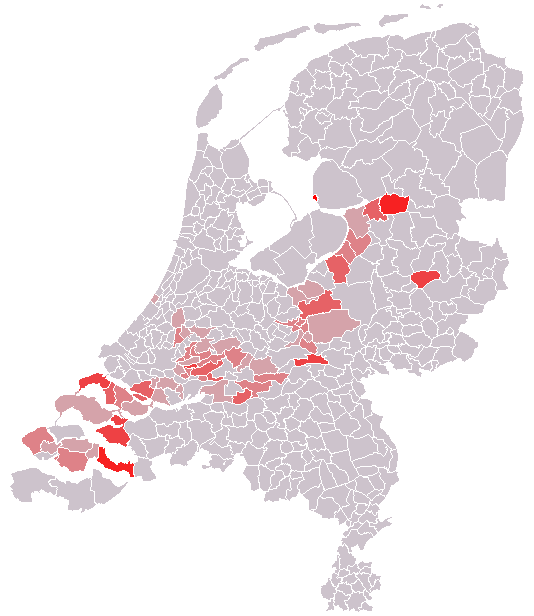Most of us have heard of the American bible belt, but did you know that the Dutch have their very own? 🙏🏻
The bible belt in the Netherlands goes by different names: bijbelgordel, bijbelbelt, or refoband.
The majority of the 400,000 residents are (you guessed it) Christian conservative Dutchies. That’s 2.5% of the Dutch population which lives in that area.
Quite a lot for such a small country, but those who are not from there sure love to point out how vreemd (weird/different) it is. And, for the most part, not in a good way.
What is it?
In the Netherlands, the bible belt refers to an area with a large number of conservative Calvinist Christians.
For those living there, religion still plays a central part in their daily lives. ⛪️
For example, the majority of the votes for the Christian conservative parties CU (ChristenUnie) and SGP (Staatkundig Gereformeerde Partij) stem from this area.
READ MORE | Religion in the Netherlands: a perspective on the different religions in the country
It is called a ‘belt’ because, if you look at a map, you can see that the majority of conservative protestants in the Netherlands live in a strip of land that stretches from Zeeland in the South over the Veluwe to Kampen in the North.

Not all conservative protestants live in the bible belt (note the small speck of red in Flevoland, the city Urk) or follow religious teachings to the same degree.
Why do they do it?
So, why does the Dutch bible belt have such a bad rep?
Well, the bijbelbelt frequently makes the news because its inhabitants often have certain views that don’t sit well with the majority of liberal Nederlanders:
- Against abortion
- Against same-sex marriage
- Against vaccinations
In 2017, a Dutch version of the Nashville Statement (Nashvilleverklaring) made headlines because it openly opposed gay marriage, non-monogamy, and transsexuality.
Then, during the pandemic, the bible belt made headlines because of low vaccination rates and failure to adhere to lockdown measures.
The faith of many community members was so strong that they refused to miss their service and attended church regardless of restrictions.
“No, we won’t get vaccinated, because we believe that the Lord provides for us,” says a man of the Dutch protestant community anonymously in this video. None of his seven children are vaccinated.
Even before, Dutch conservative protestant parents were criticised for not vaccinating their children for serious diseases such as polio, typhus or measles.
Why is it quirky?
For a country as small as the Netherlands, it’s interesting to see such drastically different beliefs colliding in one country.
This can be explained by the not-very well-known phenomenon of Dutch pillarisation.
In the 19th century, to accommodate all the different worldviews and beliefs coming together in the Netherlands, social groups such as Catholics, conservative Calvinists, and socialists started to develop their own social institutions separate from one another.
READ MORE | Myths about Dutch history and the truth behind them
This made living together easier because it avoided overlap, but it also made it, well, separate.
If you hear Dutchies talking negatively about the bible belt (which most of them do), it’s probably also in part of that.
The Dutch bible belt highlights the long arm of Calvinist tradition in the Netherlands, and the many ties between American and Dutch history.
Should you join in?
Maybe don’t hate on members of the conservative Christian community in the Netherlands, even if you disagree with their views on certain topics.
Ideally, we opt for healthy debate and ✨mutual respect ✨.
What do you think of this Dutch quirk? Have you experienced it? Tell us in the comments below!
Knowledge of facts should be a requirements for posts.
Urk is not in Friesland, but in Flevoland. Before that, it was in Overijssel.
Many Bible Belt people support the SGP party, but few will support the ChristenUnie (CU). That the word Christen appears in a party’s name, does not mean that ultra-conservative Protestants will support it.
Dear Jan, thank you so much for your feedback. You’re absolutely right about the Friesland-Flevoland mixup and we fixed the article accordingly. Cheers! 🙂